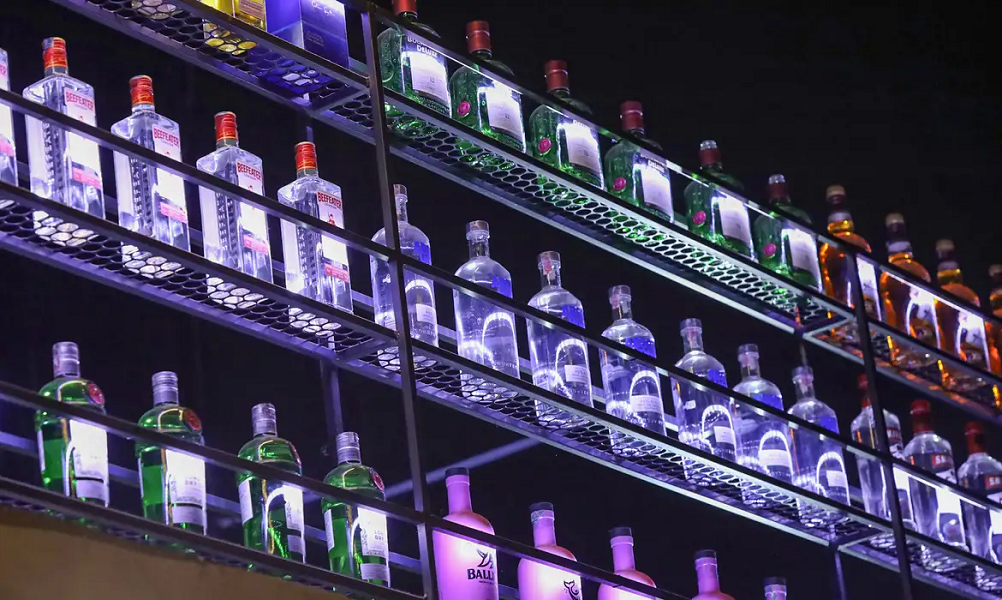The number of reports of methanol poisoning after consuming alcoholic beverages has risen to 195 in Brazil, according to a new report from the Ministry of Health released on Saturday afternoon (04/10). There are 14 confirmed cases and 181 under investigation. Rio Grande do Sul, Rio de Janeiro, and Piauí reported their first cases under investigation. Of these, 13 deaths. One confirmed and 12 under investigation – the ministry’s report does not include the second death confirmed by the São Paulo government on Saturday (04/10).
This Content Is Only For Subscribers
To unlock this content, subscribe to INTERLIRA Reports.
Methanol
Methanol is an alcohol used industrially in solvents and other chemical products. It is highly dangerous when ingested. It initially attacks the liver, which converts it into toxic substances that damage the spinal cord, brain, and optic nerve, potentially causing blindness, coma, and even death. It can also cause lung and kidney failure.
Ministry Begins Distributing Antidotes
The Ministry of Health also reported that it began distributing pharmaceutical ethanol, one of the antidotes used to treat methanol poisoning, to states that requested additional supplies. The first shipment included 580 vials sent to five states: 240 to Pernambuco, 100 to Paraná, 90 to Bahia, 90 to the Federal District, and 60 to Mato Grosso do Sul. In addition to the pharmaceutical ethanol, the ministry signed a contract to purchase 2,500 units of fomepizole, a medication also used as an antidote for poisoning.
Beginning of the Crisis
According to the Ministry of Health, the first cases occurred in late August. In late September, the contamination became public, when doctors in São Paulo began reporting cases of patients with symptoms typical of methanol poisoning. Information exchange among health professionals revealed that these were not isolated incidents: several hospitals were receiving similar cases. Unlike common poisonings—usually associated with vulnerable people who consume fuel—this time the victims had consumed alcoholic beverages in bars, parties, and social gatherings. This raised suspicions that adulterated bottles were circulating in stores.
Investigation
The Civil Police’s main line of investigation is that clandestine factories were using methanol to sanitize counterfeit bottles before bottling them. The substance, which is not legally available in Brazil, was allegedly smuggled and applied to reused containers. More than a thousand bottles have already been seized in joint operations between the police and the Health Surveillance Agency. So far, some of the samples have tested positive for methanol.
How to protect yourself?
It is not possible to identify the presence of methanol simply by looking, smelling, or tasting the drink. It does not alter color, odor, or flavor and can only be detected by laboratory tests. Authorities recommend that consumers be wary of suspicious packaging (such as bent seals or poorly printed labels), be wary of very low prices, and always demand a receipt. In the first few hours, poisoning can be confused with a common hangover: nausea, dizziness, and headache. Between 12 and 24 hours, more severe symptoms appear, such as blurred vision and rapid breathing. Within 48 hours, there is a risk of irreversible blindness, organ failure, and death.
Analysis:
The growing number of methanol poisoning cases in Brazil represents a serious public health emergency linked to the circulation of adulterated alcoholic beverages. The pattern of contamination—affecting social drinkers rather than only vulnerable populations—indicates that the problem is not isolated but systemic, involving organized illicit production and distribution networks.
From a public health perspective, the Ministry of Health’s rapid response—distributing antidotes such as pharmaceutical ethanol and medopizole—is an essential step to mitigate the impact. However, early detection and prevention remain the main challenges, as methanol contamination cannot be identified by appearance or taste.
Source: G1 [1] [2] [3] [4], Folha de S. Paulo




